The Microbiology Society’s flagship Annual Conference 2020 was originally scheduled to take place between 30 March – 3 April 2020 in Edinburgh, Scotland.
Due to the continued spread of SARS-CoV-2, the cause of COVID-19, the Council of the Microbiology Society, as Trustees of the Society, took the difficult decision to cancel this event.
The Scientific Conferences Committee are currently looking to reschedule much of this year’s meeting and scientific sessions to include them in next year’s Annual Conference.
Annual Conference 2021 is now scheduled to take place between 12 –16 April 2021 at Birmingham International Conference Centre (ICC)
While we hope many of our speakers from this year will submit again to the 2021 conference, we understand there are often other commitments, or indeed - pressure to publish their results before then.
In this case, our academic journals at the Microbiology Society are ready and willing to evaluate and review manuscripts in a multitude of different forms. Whether research, short communications or methodologies - we're always here to serve the community, and ensure your work reaches the widest possible audience. If you'd like to discuss transforming your abstract or talk into a manuscript, please contact our Head of Journal Development, Alexander Mulhern at [email protected] and he will be happy to offer guidance.
Image: rabbit75_ist/Thinkstock.
In celebration of the Society’s 75th anniversary, Annual Conference will include an additional Fleming Showcase day at the start of Annual Conference week. The Microbiology Society’s Fleming Prize is awarded each year to an early career researcher who has achieved an outstanding research record within 12 years of being awarded their PhD. The Fleming Showcase will be used as an opportunity to formally observe the legacy of past Fleming Prize winners and to examine some of the most exciting science from around the globe. The day is organised by a Committee of Past Fleming Prize Winners, which is Chaired by Sir Paul Nurse and will be compèred by academic, writer and television broadcaster, Professor Alice Roberts. This will run on Monday 30 March 2020 and will be followed by the standard 4-days of scientific sessions.
Paul Nurse (Francis Crick Institute, UK); Sarah Coulthurst (University of Dundee, UK); Neil Gow (University of Exeter, UK); Andrew Davison (University of Glasgow, UK); David Grainger (University of Birmingham, UK) and Tracy Palmer (University of Newcastle, UK).
In celebration of the Society’s 75th anniversary, Annual Conference will include an additional Fleming Showcase day at the start of Annual Conference week. The Microbiology Society’s Fleming Prize is awarded each year to an early career researcher who has achieved an outstanding research record within 12 years of being awarded their PhD. The Fleming Showcase will be used as an opportunity to formally observe the legacy of past Fleming Prize winners and to examine some of the most exciting science from around the globe. The day is organised by a Committee of Past Fleming Prize Winners, which is Chaired by Sir Paul Nurse and will be compèred by academic, writer and television broadcaster, Professor Alice Roberts. This will run on Monday 30 March 2020 and will be followed by the standard 4-days of scientific sessions.
Paul Nurse (Francis Crick Institute, UK); Sarah Coulthurst (University of Dundee, UK); Neil Gow (University of Exeter, UK); Andrew Davison (University of Glasgow, UK); David Grainger (University of Birmingham, UK) and Tracy Palmer (University of Newcastle, UK).
The Bacteroidetes are abundant colonisers of humans where they are one of the two dominant phyla. This session will focus on the many and varied interactions of the anaerobic Bacteroidetes with the human host, both as members of the normal resident microbiota and as opportunistic pathogens. Aspects of the physiology, metabolism and molecular genetics of Bacteroidetes, such as Bacteroides, Prevotella and Porphyromonas will be addressed along with potential cancer, Alzheimer’s and other disease associations. In addition to being of interest to researchers working on specific members of the Bacteroidetes, researchers studying oral, gastrointestinal tract and female genital system microbiomes will gain key insights into these important members of the microbiota. Offered papers relating to all aspects of the Bacteroidetes will be considered for presentation within the symposium.
Sheila Patrick (Queen's University Belfast, UK) and Garry Blakely (University of Edinburgh, UK)
'The time may come when penicillin can be bought by anyone in the shops. There is a danger that the ignorant man may easily underdose himself by exposing his microbes to non-lethal quantities of the drug making them resistant'. Since Alexander Fleming's prophetic warning in 1945, antimicrobial resistance has rapidly developed into a critically important global health threat. How bad is AMR, and what can we do about it? This session will start by looking at the global scale of the AMR problem, then delve into the causes of AMR, and finally address some of the potential solutions. The session aims to bring together scientists with interests in AMR, across the fields of epidemiology, global public health, mechanisms of AMR development and spread, antimicrobial stewardship and discovery of novel therapeutics.
Jody Winter (Nottingham Trent University, UK), Meera Unnikrishnan (Warwick University, UK) and Jennifer Ritchie (University of Surrey, UK)
Microbial life dominates the marine environment. Collectively their biomass greatly exceeds that of all other life forms in the oceans. Marine microbes have thrived in the world’s seas for billions of years and their diversity outweighs all non-microbial marine life combined. Microbes make the oceans work. They form and sustain global biogeochemical cycles, underpin food webs and maintain (or sometimes perturb) ecosystem health. Marine microbes are also a valuable source of biomolecules and enzymes, with great biotechnological potential. The session will bring together microbiologists from a range of fields with a collective interest in Marine Microbiology. The session will broadly cover three overarching themes; ‘marine microbial biogeochemistry’, ‘microbial symbiosis and interaction’, and ‘harnessing the potential of marine microbes’. As well as presentations from established research leaders in the field, the session will also showcase early career researchers.
Michael Cunliffe (Marine Biological Association, UK); Katherine Duncan (University of Strathclyde, UK); James McDonald (Bangor University, UK) and Katherine Helliwell (Marine Biological Association, UK)
Microbes produce a fascinating range of chemicals, from simple molecules to complex proteins, many of which are well understood virulence factors playing a pivotal role in pathogenesis. In the environment production of toxins by bacteria, algae and fungi are less well understood despite advances in the tools available for their study. This exciting session will be focus on toxins as virulence factors in the morning and the ecological role of toxins in the environment.
Christine Edwards (Robert Gordon University, UK)
This symposium will provide delegates with the opportunity to learn from the experience of those involved in AMR outreach and engagement activities. HEA fellowships will be explored in its wider breadth and an application workshop will allow delegates to receive feedback on how to right an application. The symposium will also create a platform for those involved or wanting to be involved in using digital technologies in teaching by facilitating live demonstrations. Those involved in teaching, wanting to pursue a teaching focused role or keep up to date with new techniques and standards, including post-doctoral demonstrators, are encouraged to attend.
Register on eventbrite.
Tadhg Ó'Cróinín (University College Dublin, Ireland); Nicola Crewe (University of Lincoln, UK); James Edwards (Plymouth University, UK); Alison Graham (University of Newcastle, UK) and Chris Randall (University of Leeds, UK)
This session follows the theme of the 75th anniversary meeting by looking at the past history of microbiology and how drawing from lessons of the past informs our research today. It will explore technologies today that are making use of techniques established decades ago, research that is delving into microbial archaeology to better understand pathogens of today and tomorrow, and investigations that are rediscovering and repurposing pharmaceuticals and treatments from previous eras.
Offered reflections on microbial practice in a specific area, application or technique are encouraged with a view to adoption of ‘historic’ ideas, or to highlight novel developments.
Edward Louis (University of Leicester, UK); Elinor Thompson (University of Greenwich, UK) and Lori Snyder (Kingston University, UK)
Over the last decade there have been an increasing number of reports of phenotypic changes in microorganisms that cannot be explained by changes in DNA sequence or genome rearrangements. These so-called epigenetic phenomena represent a number of different underlying mechanisms ranging from DNA modification and chromatin remodelling to inherited conformational changes in cellular proteins. These reversible molecular processes can impact on the expression of large numbers of genes and thus represent a means of rapidly changing the transcriptional programme of a microorganism without genome modification. This session will cover the wide range of epigenetic phenomena in bacteria, fungi and protozoa.
Mick Tuite (University of Kent, UK) and Alessia Buscaino (University of Kent, UK)
The skin is the largest organ of the body. It possesses a complex architecture of differentiated layers of keratinocytes and immune cells, including Langerhans cells, macrophages and dendritic cells that together provide an efficient barrier to pathogens. Nonetheless, the skin remains the natural route of entry and/or site of replication for many viruses, some of which also depend on it for shedding. This symposium will focus on recent breakthroughs in our understanding of virus-host interactions in the skin and the underlying molecular mechanisms behind these. Topics will include virus replication in the skin; virus control of cell differentiation; virus induced cancers at these sites; and immune responses in the skin to insect-delivered viruses. Viral-host interactions at surfaces associated with the skin, such as oral epithelium and the reproductive tract will be included.
Gill Elliott (University of Surrey, UK); Christopher McCormick (University of Southampton, UK) and Gerald Barry (University College Dublin, Republic of Ireland)
The Bacteroidetes are abundant colonisers of humans where they are one of the two dominant phyla. This session will focus on the many and varied interactions of the anaerobic Bacteroidetes with the human host, both as members of the normal resident microbiota and as opportunistic pathogens. Aspects of the physiology, metabolism and molecular genetics of Bacteroidetes, such as Bacteroides, Prevotella and Porphyromonas will be addressed along with potential cancer, Alzheimer’s and other disease associations. In addition to being of interest to researchers working on specific members of the Bacteroidetes, researchers studying oral, gastrointestinal tract and female genital system microbiomes will gain key insights into these important members of the microbiota. Offered papers relating to all aspects of the Bacteroidetes will be considered for presentation within the symposium.
Sheila Patrick (Queen's University Belfast, UK) and Garry Blakely (University of Edinburgh, UK)
'The time may come when penicillin can be bought by anyone in the shops. There is a danger that the ignorant man may easily underdose himself by exposing his microbes to non-lethal quantities of the drug making them resistant'. Since Alexander Fleming's prophetic warning in 1945, antimicrobial resistance has rapidly developed into a critically important global health threat. How bad is AMR, and what can we do about it? This session will start by looking at the global scale of the AMR problem, then delve into the causes of AMR, and finally address some of the potential solutions. The session aims to bring together scientists with interests in AMR, across the fields of epidemiology, global public health, mechanisms of AMR development and spread, antimicrobial stewardship and discovery of novel therapeutics.
Jody Winter (Nottingham Trent University, UK), Meera Unnikrishnan (Warwick University, UK) and Jennifer Ritchie (University of Surrey, UK)
This session follows the theme of the 75th anniversary meeting by looking at the past history of microbiology and how drawing from lessons of the past informs our research today. It will explore technologies today that are making use of techniques established decades ago, research that is delving into microbial archaeology to better understand pathogens of today and tomorrow, and investigations that are rediscovering and repurposing pharmaceuticals and treatments from previous eras.
Offered reflections on microbial practice in a specific area, application or technique are encouraged with a view to adoption of ‘historic’ ideas, or to highlight novel developments.
Edward Louis (University of Leicester, UK); Elinor Thompson (University of Greenwich, UK) and Lori Snyder (Kingston University, UK)
Over the last decade there have been an increasing number of reports of phenotypic changes in microorganisms that cannot be explained by changes in DNA sequence or genome rearrangements. These so-called epigenetic phenomena represent a number of different underlying mechanisms ranging from DNA modification and chromatin remodelling to inherited conformational changes in cellular proteins. These reversible molecular processes can impact on the expression of large numbers of genes and thus represent a means of rapidly changing the transcriptional programme of a microorganism without genome modification. This session will cover the wide range of epigenetic phenomena in bacteria, fungi and protozoa.
Mick Tuite (University of Kent, UK) and Alessia Buscaino (University of Kent, UK)
Microbial life dominates the marine environment. Collectively their biomass greatly exceeds that of all other life forms in the oceans. Marine microbes have thrived in the world’s seas for billions of years and their diversity outweighs all non-microbial marine life combined. Microbes make the oceans work. They form and sustain global biogeochemical cycles, underpin food webs and maintain (or sometimes perturb) ecosystem health. Marine microbes are also a valuable source of biomolecules and enzymes, with great biotechnological potential. The session will bring together microbiologists from a range of fields with a collective interest in Marine Microbiology. The session will broadly cover three overarching themes; ‘marine microbial biogeochemistry’, ‘microbial symbiosis and interaction’, and ‘harnessing the potential of marine microbes’. As well as presentations from established research leaders in the field, the session will also showcase early career researchers.
Michael Cunliffe (Marine Biological Association, UK); Katherine Duncan (University of Strathclyde, UK); James McDonald (Bangor University, UK) and Katherine Helliwell (Marine Biological Association, UK)
Microbes produce a fascinating range of chemicals, from simple molecules to complex proteins, many of which are well understood virulence factors playing a pivotal role in pathogenesis. In the environment production of toxins by bacteria, algae and fungi are less well understood despite advances in the tools available for their study. This exciting session will be focus on toxins as virulence factors in the morning and the ecological role of toxins in the environment.
Christine Edwards (Robert Gordon University, UK)
This symposium will provide delegates with the opportunity to learn from the experience of those involved in AMR outreach and engagement activities. HEA fellowships will be explored in its wider breadth and an application workshop will allow delegates to receive feedback on how to right an application. The symposium will also create a platform for those involved or wanting to be involved in using digital technologies in teaching by facilitating live demonstrations. Those involved in teaching, wanting to pursue a teaching focused role or keep up to date with new techniques and standards, including post-doctoral demonstrators, are encouraged to attend.
Register on eventbrite.
Tadhg Ó'Cróinín (University College Dublin, Ireland); Nicola Crewe (University of Lincoln, UK); James Edwards (Plymouth University, UK); Alison Graham (University of Newcastle, UK) and Chris Randall (University of Leeds, UK)
The skin is the largest organ of the body. It possesses a complex architecture of differentiated layers of keratinocytes and immune cells, including Langerhans cells, macrophages and dendritic cells that together provide an efficient barrier to pathogens. Nonetheless, the skin remains the natural route of entry and/or site of replication for many viruses, some of which also depend on it for shedding. This symposium will focus on recent breakthroughs in our understanding of virus-host interactions in the skin and the underlying molecular mechanisms behind these. Topics will include virus replication in the skin; virus control of cell differentiation; virus induced cancers at these sites; and immune responses in the skin to insect-delivered viruses. Viral-host interactions at surfaces associated with the skin, such as oral epithelium and the reproductive tract will be included.
Gill Elliott (University of Surrey, UK); Christopher McCormick (University of Southampton, UK) and Gerald Barry (University College Dublin, Republic of Ireland)
'The time may come when penicillin can be bought by anyone in the shops. There is a danger that the ignorant man may easily underdose himself by exposing his microbes to non-lethal quantities of the drug making them resistant'. Since Alexander Fleming's prophetic warning in 1945, antimicrobial resistance has rapidly developed into a critically important global health threat. How bad is AMR, and what can we do about it? This session will start by looking at the global scale of the AMR problem, then delve into the causes of AMR, and finally address some of the potential solutions. The session aims to bring together scientists with interests in AMR, across the fields of epidemiology, global public health, mechanisms of AMR development and spread, antimicrobial stewardship and discovery of novel therapeutics.
Jody Winter (Nottingham Trent University, UK), Meera Unnikrishnan (Warwick University, UK) and Jennifer Ritchie (University of Surrey, UK)
This session will provide participants with useful information about the key areas of business to consider when becoming a scientific entrepreneur. Participants will be given a checklist of considerations from patents and funding to marketing strategies and creating a team. Microbiology entrepreneurs will provide insight into how they transformed their scientific research into business ideas, and the afternoon will conclude with live pitches with professional feedback from invited guests. This session will be useful for those considering or wanting feedback on a business idea.
Register on eventbrite.
Diane Wilkinson (CHAIN Biotechnology Ltd, UK) and Tadhg Ó'Cróinín (University College Dublin, Ireland)
The ever-increasing drive to improve societal health has provided enormous advances in the medicinal treatment of diseases and conditions. At the heart of many of these advances is the identification and validation of new drugs – relating to both non-infectious and infection-related diseases. Past approaches in drug discovery were primarily based upon demonstrated efficacy in mammalian models. However, nowadays, the pharmaceutical industry requires a validated mechanism of action for new drugs to improve confidence in these products. Identifying these targets and mechanism in mammalian models is highly problematic due to the restricted nature of experimental approaches using mammalian cells, because of the complex nature and genetic redundancy of mammalian biology, and in the field of eukaryotic pathogen research these models are complicated by the high degree of homology between the host and the infection. To aid this research, Eukaryotic microbial models have been employed to in the field of drug discovery particularly relating to identifying targets and mechanism of action in both infection biology and in many other areas beyond this (i.e. identification of the mechanisms of action for novel anti-cancer or anti-epileptic drugs). This session will focus on the use of eukaryotic microbial models for the identification of drug targets and their respective mechanisms of action, ranging from the identification of novel therapeutics for the treatment both in infection and other disease paradigms. It will seek to cover a variety of eukaryotic systems, including yeast, fungi, social microbes and trypanosomes, looking at medical drug discovery and drug target research, in wide ranging fields of medicine.
Robin Williams (Royal Holloway, UK) and Rebecca Hall (University of Birmingham, UK)
Microbial life dominates the marine environment. Collectively their biomass greatly exceeds that of all other life forms in the oceans. Marine microbes have thrived in the world’s seas for billions of years and their diversity outweighs all non-microbial marine life combined. Microbes make the oceans work. They form and sustain global biogeochemical cycles, underpin food webs and maintain (or sometimes perturb) ecosystem health. Marine microbes are also a valuable source of biomolecules and enzymes, with great biotechnological potential. The session will bring together microbiologists from a range of fields with a collective interest in Marine Microbiology. The session will broadly cover three overarching themes; ‘marine microbial biogeochemistry’, ‘microbial symbiosis and interaction’, and ‘harnessing the potential of marine microbes’. As well as presentations from established research leaders in the field, the session will also showcase early career researchers.
Michael Cunliffe (Marine Biological Association, UK); Katherine Duncan (University of Strathclyde, UK); James McDonald (Bangor University, UK) and Katherine Helliwell (Marine Biological Association, UK)
This forum will consider offered papers on all aspects of microbial (prokaryotic and eukaryotic) metabolism and physiology, including fundamental research on the biochemistry and structure of cells, cell growth and division, cell architecture and differentiation, synthesis and transport of macromolecules, ions and small molecules and the cell cycle; but also on the role of physiology in microbial engineering, signalling and communication, sensing and cellular responses, the molecular mechanisms behind these phenomena and their potential applications
Gillian Fraser (University of Cambridge, UK) and Martin Welch (University of Cambridge, UK)
This workshop will be structured around a typical life-cycle of a retrovirus and will cover virus entry and uncoating, genome replication, particle structure, assembly and egress. Pathogenesis will be covered to demonstrate the diversity of diseases that these viruses cause, together with the host response to infection, and vaccine or antiviral-based treatments or therapies that can be used to combat infection. Both human and animal pathogens will be covered, including the opportunity for clinicians to present studies on ongoing outbreaks or epidemiological studies.
Tamyo Mbisa (Public Health England, UK) and Rachael Tarlinton (Nottingham University, UK)
This workshop will be structured around a typical life-cycle of DNA viruses and will cover virus entry and uncoating, genome replication, particle structure, assembly and egress. Pathogenesis will be covered to demonstrate the diversity of diseases that these viruses cause, together with the host response to infection, and vaccine or antiviral-based treatments or therapies that can be used to combat infection. Both human and animal pathogens will be covered, including the opportunity for clinicians to present studies on ongoing outbreaks or epidemiological studies.
Gill Elliott (University of Surrey, UK) and Blair Strang (St George's, University of London, UK)
This workshop will be structured around a typical life-cycle of these viruses and will cover virus entry and uncoating, genome replication, particle structure, assembly and egress. Pathogenesis will be covered to demonstrate the diversity of diseases that these viruses cause, together with the host response to infection, and vaccine or antiviral-based treatments or therapies that can be used to combat infection. Both human and animal pathogens will be covered, including the opportunity for clinicians to present studies on ongoing outbreaks or epidemiological studies.
Holly Shelton (Pirbright Institute, UK); Martina Scallan (University College Cork, Republic of Ireland) and Ed Hutchinson (University of Glasgow, UK)
This workshop will be structured around a typical life-cycle of these viruses and will cover virus entry and uncoating, genome replication, particle structure, assembly and egress. Pathogenesis will be covered to demonstrate the diversity of diseases that these viruses cause, together with the host response to infection, and vaccine or antiviral-based treatments or therapies that can be used to combat infection. Both human and animal pathogens will be covered, including the opportunity for clinicians to present studies on ongoing outbreaks or epidemiological studies.
Steve Griffin (University of Leeds, UK) and Gerald Barry (University College Dublin, Ireland)
This session will highlight advances made in microbial bio-engineering, synthetic microbiology and systems biotechnology that ultimately aims to disrupt the fossil-fuel based economy through the establishment of sustainable manufacturing of metabolites, materials and medicines for a range of applications and sectors. Contributions are invited on topics such as bio-based and/or self-organising building blocks and nanoparticles, bioproduction, biofabrication, smart and hybrid biomaterials, biosensors and bioremediation while submissions on novel tools for design and bio-engineering will also be most welcome.
Geertje van Keulen (Swansea University, UK); Alison Smith (University of Cambridge, UK) and Nick Tucker (University of Strathclyde, UK)
Offered papers on all aspects of the genes and genomes of microbes (prokaryotes and eukaryotes) and their mobile elements will be considered, including their sequencing, transcription, translation, regulation, chromosome dynamics, gene transfer, population genetics and evolution, taxonomy and systematics, comparative genomics, metagenomics, bioinformatics, and synthetic biology.
Andrew Preston (University of Bath, UK) and Sarah Maddocks (Cardiff Metropolitan University, UK)
The synthesis of viral proteins and genome is dependent on gaining control of the host cell translation machinery, imposing major stress on the host. In response to this stress, infected cells can induce several defence mechanisms to promote cell survival, pathogen elimination or to restrict the use/availability of energy and nutrients. This session will bring together scientists interested in the multiple cellular stress responses triggered, and subsequently manipulated, by viruses. These responses include metabolic stress, pathogen sensing, autophagy, protein quality control, the DNA damage response, inflammation and stress granules. Many of these pathways are essential for the maintenance of the cellular proteostasis network and are intimately linked to antiviral defences. Therefore, this session will illustrate novel and elegant interactions viruses have evolved to manipulate these stress responses by hijacking, co-opting or inactivating their individual components. Through understanding of these interactions fundamental new insight into key biological processes is revealed. Furthermore, it has the potential to identify new opportunities for the development of novel therapeutic antiviral strategies. Thus, this session will be of broad appeal to virologists interested in a particular pathogen and the general process of pathogenesis, but also cell biologists or microbiologists with interest in specific cellular stress responses.
Matthew Reeves (University College London, UK); Nicolas Locker (University of Surrey, UK) and Claire Shannon-Lowe (University of Birmingham, UK)
This workshop will involve a range of clinical virology cases. Different aspects of clinical virology that will be covered include: differential diagnosis of encephalitis, management of hepatitis, diversity of rotavirus sequences, and diagnosis of respiratory infections.
Tamyo Mbisa (Public Health England, UK) and Stephen Winchester (Frimley Health NHS Foundation Trust)
This workshop will be structured around a typical life-cycle of DNA viruses and will cover virus entry and uncoating, genome replication, particle structure, assembly and egress. Pathogenesis will be covered to demonstrate the diversity of diseases that these viruses cause, together with the host response to infection, and vaccine or antiviral-based treatments or therapies that can be used to combat infection. Both human and animal pathogens will be covered, including the opportunity for clinicians to present studies on ongoing outbreaks or epidemiological studies.
Gill Elliott (University of Surrey, UK) and Blair Strang (St George's, University of London, UK)
This workshop will be structured around a typical life-cycle of these viruses and will cover virus entry and uncoating, genome replication, particle structure, assembly and egress. Pathogenesis will be covered to demonstrate the diversity of diseases that these viruses cause, together with the host response to infection, and vaccine or antiviral-based treatments or therapies that can be used to combat infection. Both human and animal pathogens will be covered, including the opportunity for clinicians to present studies on ongoing outbreaks or epidemiological studies.
Holly Shelton (Pirbright Institute, UK); Martina Scallan (University College Cork, Republic of Ireland) and Ed Hutchinson (University of Glasgow, UK)
This workshop will be structured around a typical life-cycle of these viruses and will cover virus entry and uncoating, genome replication, particle structure, assembly and egress. Pathogenesis will be covered to demonstrate the diversity of diseases that these viruses cause, together with the host response to infection, and vaccine or antiviral-based treatments or therapies that can be used to combat infection. Both human and animal pathogens will be covered, including the opportunity for clinicians to present studies on ongoing outbreaks or epidemiological studies.
Steve Griffin (University of Leeds, UK) and Gerald Barry (University College Dublin, Ireland)
This session will highlight advances made in microbial bio-engineering, synthetic microbiology and systems biotechnology that ultimately aims to disrupt the fossil-fuel based economy through the establishment of sustainable manufacturing of metabolites, materials and medicines for a range of applications and sectors. Contributions are invited on topics such as bio-based and/or self-organising building blocks and nanoparticles, bioproduction, biofabrication, smart and hybrid biomaterials, biosensors and bioremediation while submissions on novel tools for design and bio-engineering will also be most welcome.
Geertje van Keulen (Swansea University, UK); Alison Smith (University of Cambridge, UK) and Nick Tucker (University of Strathclyde, UK)
Funding advisors will provide participants with greater clarity around fellowship strategies and application processes. Attendees will learn how to find the best fellowships for them and will learn from those who have recently been awarded fellowships. Those wishing to gain personal one-to-one feedback and advise from experts are welcome sign up to attend an allocated time slot during the application surgery. Early and mid-career researchers wanting to explore fellowship application processes are encouraged to attend.
Register on eventbrite.
Daniela Barilla (University of York) and Rachel Asiedu (Microbiology Society, UK)
This session comprises current research on the microbial cell surface which is relevant to wider microbiology and indeed biology in general. As broad a range of topics as possible will be included, to encompass microbial outer layers and their roles in communication with neighbours and the environment, signal generation, receptors and sensing, evolutionary aspects, and the function of transporters and enzymes in the membrane or cell wall. We hope these will appeal to all interests, from basic science to biomedicine and biotechnology.
Elinor Thompson (University of Greenwich, UK) and John Morrissey (University College Cork, Republic of Ireland)
A broad session covering the spectrum of public health microbiology applications. Invited speakers cover the practise and application of public health microbiology at the global level (Fatima Serhan, WHO) and at the national level (Gayatri Amirthalingam, PHE Colindale, UK). We cover public health microbiology at the front line including an update on the contentious issue of Lyme disease incidence and epidemiology (Anne Cruickshank, Lyme Disease Action UK); and how genomics can be incorporated fully into national level surveillance and epidemiology of infectious disease as demonstrate by Michael Weigand, CDC Atlanta, USA. We will include offered papers from across the breadth of public health microbiology to deliberately create a broad interest session.
Andrew Preston (University of Bath, UK) and Norman Fry (Public Health England, UK)
With the United Nations' resolution to eliminate world hunger by 2030 and the globe's population heading toward nine billion, the agriculture industry will need to increase livestock production from the same, or less, land. Livestock is using most of the agricultural land (80% including grazing land and cropland for feed). Africa and Asia are the continents with the largest share of the world's uncultivated land, but attempts to develop and expand current capacity in order to meet the growing food demand are halted by deadly killers in the form of viruses, bacterial and protozoan parasites. This session focuses on neglected livestock diseases that have a large economic impact on poor livestock keepers in Africa and South Asia. WWe will showcase the latest developments in basic and applied biology research in swine fever, animal trypanosomiasis, Brucellosis, bovine TB, coccidiosis, East Coast Fever, porcine cysticercosis, discuss host-pathogen interactions, vaccinology strategies and much more.
Catarina Gadelha (University of Nottingham, UK), Jennifer Ritchie (University of Surrey, UK); Pip Beard (The Pirbright Institute, UK) and Sonja Rueckert (Edinburgh Napier University, UK)
Bacteria host a diverse range of mobile genetic elements (MGEs) — including plasmids, transposons, integrative-conjugative elements, and prophages — that make a significant impact on the lives of the bacteria they inhabit, and beyond. As vehicles of horizontal gene transfer, MGEs facilitate rapid adaptation, allowing microbes to colonize new environments, exemplified by the alarming spread of resistance genes between lineages. Changes in MGE copy number can alter gene dosage, enhancing evolution through increased mutational supply, while changes to genome architecture or gene expression caused by MGE activity can result in large-scale phenotypic change. MGEs interact with one another in multifarious ways both competitive and collaborative, affecting the success of the microbes that host them. Meanwhile, the functions encoded by MGEs represent a powerful molecular toolkit which has been repurposed by microbes for various services including gene regulation and antagonising neighbours. In this session we will consider the far-reaching contribution that these ubiquitous, diverse, and versatile elements make to microbial life.
Robert Fagan (University of Sheffield, UK) and James Hall (University of Liverpool, UK)
Microbes are versatile metabolic factories that have the potential to produce a wide range of metabolites, including small bioactive compounds. Many microbes also have specific symbiotic interactions with multicellular organisms, including insects and other animals. There is now an increasing body of work showing that some microbial metabolites have important roles in controlling the development and/or behaviour of these multicellular organisms. In this symposium the role of metabolites produced by complex microbial communities, such as the gut microbiota, in animal health and development will be explored. This symposium will also discuss the role of specific signalling molecules that are produced by microbes and have been shown to have key roles in regulating the life-cycles of their animal hosts. Finally, in addition to making metabolites, the symposium will hear how microbes can transform one type of molecule into another with potentially serious implications on the health of the host.
David Clarke (University College Cork, Ireland); Gunnar Schroeder (Queen's University, Belfast) and Conor Feehily (Teagasc Moorepark, Republic of Ireland)
The synthesis of viral proteins and genome is dependent on gaining control of the host cell translation machinery, imposing major stress on the host. In response to this stress, infected cells can induce several defence mechanisms to promote cell survival, pathogen elimination or to restrict the use/availability of energy and nutrients. This session will bring together scientists interested in the multiple cellular stress responses triggered, and subsequently manipulated, by viruses. These responses include metabolic stress, pathogen sensing, autophagy, protein quality control, the DNA damage response, inflammation and stress granules. Many of these pathways are essential for the maintenance of the cellular proteostasis network and are intimately linked to antiviral defences. Therefore, this session will illustrate novel and elegant interactions viruses have evolved to manipulate these stress responses by hijacking, co-opting or inactivating their individual components. Through understanding of these interactions fundamental new insight into key biological processes is revealed. Furthermore, it has the potential to identify new opportunities for the development of novel therapeutic antiviral strategies. Thus, this session will be of broad appeal to virologists interested in a particular pathogen and the general process of pathogenesis, but also cell biologists or microbiologists with interest in specific cellular stress responses.
Nicolas Locker (University of Surrey, UK); Stephen Griffin (University of Leeds, UK); Matthew Reeves (UCL, UK) and Claire Shannon-Lowe (University of Birmingham, UK)
This session will highlight advances made in microbial bio-engineering, synthetic microbiology and systems biotechnology that ultimately aims to disrupt the fossil-fuel based economy through the establishment of sustainable manufacturing of metabolites, materials and medicines for a range of applications and sectors. Contributions are invited on topics such as bio-based and/or self-organising building blocks and nanoparticles, bioproduction, biofabrication, smart and hybrid biomaterials, biosensors and bioremediation while submissions on novel tools for design and bio-engineering will also be most welcome.
Geertje van Keulen (Swansea University, UK); Alison Smith (University of Cambridge, UK) and Nick Tucker (University of Strathclyde, UK)
Funding advisors will provide participants with greater clarity around fellowship strategies and application processes. Attendees will learn how to find the best fellowships for them and will learn from those who have recently been awarded fellowships. Those wishing to gain personal one-to-one feedback and advise from experts are welcome sign up to attend an allocated time slot during the application surgery. Early and mid-career researchers wanting to explore fellowship application processes are encouraged to attend.
Register on eventbrite.
Daniela Barilla (University of York) and Rachel Asiedu (Microbiology Society, UK)
This session, under the umbrella of Protistology-UK, will complement the new UK initiative “Darwin Tree of Life Project”, which aims to sequence and annotate the genomes of 66,000 UK species of animals, plants protists and fungi. This initiative is part of the “Earth BioGenome Project”, which targets to sequence all 1.5 million known eukaryotic species on earth. Protists and fungi are the main contributors to this list and we will explore their vast diversity, not only within the UK, but globally. Speakers will discuss which branches of the eukaryotic tree of life have been over/underestimated based on recent metagenomics data and which regions have been undersampled to explore and discover potentially new branches of the eukaryotic tree.
Anastasios Tsaousis (University of Kent, UK) and Sonja Rueckert (Edinburgh Napier University, UK)
Microbes are versatile metabolic factories that have the potential to produce a wide range of metabolites, including small bioactive compounds. Many microbes also have specific symbiotic interactions with multicellular organisms, including insects and other animals. There is now an increasing body of work showing that some microbial metabolites have important roles in controlling the development and/or behaviour of these multicellular organisms. In this symposium the role of metabolites produced by complex microbial communities, such as the gut microbiota, in animal health and development will be explored. This symposium will also discuss the role of specific signalling molecules that are produced by microbes and have been shown to have key roles in regulating the life-cycles of their animal hosts. Finally, in addition to making metabolites, the symposium will hear how microbes can transform one type of molecule into another with potentially serious implications on the health of the host.
David Clarke (University College Cork, Ireland); Gunnar Schroeder (Queen's University, Belfast) and Conor Feehily (Teagasc Moorepark, Republic of Ireland)
This session comprises current research on the microbial cell surface which is relevant to wider microbiology and indeed biology in general. As broad a range of topics as possible will be included, to encompass microbial outer layers and their roles in communication with neighbours and the environment, signal generation, receptors and sensing, evolutionary aspects, and the function of transporters and enzymes in the membrane or cell wall. We hope these will appeal to all interests, from basic science to biomedicine and biotechnology.
Elinor Thompson (University of Greenwich, UK) and John Morrissey (University College Cork, Republic of Ireland)
A broad session covering the spectrum of public health microbiology applications. Invited speakers cover the practise and application of public health microbiology at the global level (Fatima Serhan, WHO) and at the national level (Gayatri Amirthalingam, PHE Colindale, UK). We cover public health microbiology at the front line including an update on the contentious issue of Lyme disease incidence and epidemiology (Anne Cruickshank, Lyme Disease Action UK); and how genomics can be incorporated fully into national level surveillance and epidemiology of infectious disease as demonstrate by Michael Weigand, CDC Atlanta, USA. We will include offered papers from across the breadth of public health microbiology to deliberately create a broad interest session.
Andrew Preston (University of Bath, UK) and Norman Fry (Public Health England, UK)
With the United Nations' resolution to eliminate world hunger by 2030 and the globe's population heading toward nine billion, the agriculture industry will need to increase livestock production from the same, or less, land. Livestock is using most of the agricultural land (80% including grazing land and cropland for feed). Africa and Asia are the continents with the largest share of the world's uncultivated land, but attempts to develop and expand current capacity in order to meet the growing food demand are halted by deadly killers in the form of viruses, bacterial and protozoan parasites. This session focuses on neglected livestock diseases that have a large economic impact on poor livestock keepers in Africa and South Asia. WWe will showcase the latest developments in basic and applied biology research in swine fever, animal trypanosomiasis, Brucellosis, bovine TB, coccidiosis, East Coast Fever, porcine cysticercosis, discuss host-pathogen interactions, vaccinology strategies and much more.
Catarina Gadelha (University of Nottingham, UK), Jennifer Ritchie (University of Surrey, UK); Pip Beard (The Pirbright Institute, UK) and Sonja Rueckert (Edinburgh Napier University, UK)
Bacteria host a diverse range of mobile genetic elements (MGEs) — including plasmids, transposons, integrative-conjugative elements, and prophages — that make a significant impact on the lives of the bacteria they inhabit, and beyond. As vehicles of horizontal gene transfer, MGEs facilitate rapid adaptation, allowing microbes to colonize new environments, exemplified by the alarming spread of resistance genes between lineages. Changes in MGE copy number can alter gene dosage, enhancing evolution through increased mutational supply, while changes to genome architecture or gene expression caused by MGE activity can result in large-scale phenotypic change. MGEs interact with one another in multifarious ways both competitive and collaborative, affecting the success of the microbes that host them. Meanwhile, the functions encoded by MGEs represent a powerful molecular toolkit which has been repurposed by microbes for various services including gene regulation and antagonising neighbours. In this session we will consider the far-reaching contribution that these ubiquitous, diverse, and versatile elements make to microbial life.
Robert Fagan (University of Sheffield, UK) and James Hall (University of Liverpool, UK)
The synthesis of viral proteins and genome is dependent on gaining control of the host cell translation machinery, imposing major stress on the host. In response to this stress, infected cells can induce several defence mechanisms to promote cell survival, pathogen elimination or to restrict the use/availability of energy and nutrients. This session will bring together scientists interested in the multiple cellular stress responses triggered, and subsequently manipulated, by viruses. These responses include metabolic stress, pathogen sensing, autophagy, protein quality control, the DNA damage response, inflammation and stress granules. Many of these pathways are essential for the maintenance of the cellular proteostasis network and are intimately linked to antiviral defences. Therefore, this session will illustrate novel and elegant interactions viruses have evolved to manipulate these stress responses by hijacking, co-opting or inactivating their individual components. Through understanding of these interactions fundamental new insight into key biological processes is revealed. Furthermore, it has the potential to identify new opportunities for the development of novel therapeutic antiviral strategies. Thus, this session will be of broad appeal to virologists interested in a particular pathogen and the general process of pathogenesis, but also cell biologists or microbiologists with interest in specific cellular stress responses.
Nicolas Locker (University of Surrey, UK); Stephen Griffin (University of Leeds, UK); Matthew Reeves (UCL, UK) and Claire Shannon-Lowe (University of Birmingham, UK)
This forum includes offered papers on any area and any organism relevant to environmental, ecological, applied and industrial microbiology, including (non-human) host–microbe communities and interactions, marine and freshwater microbiology, soil and geomicrobiology, air-, cryo- and extremophile microbiology, climate change, biotechnology, bio-processing and bio-engineering, food microbiology, and other applied and industrial microbial processes, including microbe-mediated biodegradation and bioremediation.
Christine Edwards (Robert Gordon University, UK); Michael Cunliffe (Marine Biological Association, UK); Katherine Duncan (University of Strathclyde, UK) and James MacDonald (Bangor University, UK)
During this workshop AdvanceHE will equip participants with the knowledge and skills to identify unconscious biases, understand their potential for impacting on decision making and develop techniques to minimise that impact. This interactive workshop will explore the way the brain processes information and makes shortcuts and assumptions on our behalf, without us even noticing. Participants will take part in discussions on strategies and mechanisms for managing our brain’s processing and ultimately, ensuring our actions are based on sound rationale and are not unconsciously biased. This session is suited to those in managerial positions or involved in staff management practices such as recruitment, appraisal and performance management. Those wanting to learn more about unconscious bias are also encouraged to attend.
Register on eventbrite.
Irfaan Arif (AdvanceHE, UK)
This session, under the umbrella of Protistology-UK, will complement the new UK initiative “Darwin Tree of Life Project”, which aims to sequence and annotate the genomes of 66,000 UK species of animals, plants protists and fungi. This initiative is part of the “Earth BioGenome Project”, which targets to sequence all 1.5 million known eukaryotic species on earth. Protists and fungi are the main contributors to this list and we will explore their vast diversity, not only within the UK, but globally. Speakers will discuss which branches of the eukaryotic tree of life have been over/underestimated based on recent metagenomics data and which regions have been undersampled to explore and discover potentially new branches of the eukaryotic tree.
Anastasios Tsaousis (University of Kent, UK) and Sonja Rueckert (Edinburgh Napier University, UK)
Offered papers will be presented in areas related to infections caused by prokaryote and eukaryote pathogens of human, veterinary or botanical significance including epidemiology, diagnosis, identification, typing, pathogenesis, treatment, antimicrobial agents and resistance, prevention, virulence factors, host responses and immunity, transmission, and models of infection at the cell, tissue or whole organism level.
Andrew Edwards (Imperial College London, UK); Duncan Wilson (University of Exeter, UK) and Helen Brown (Cardiff University, UK)
Protozoa, like many eukaryotic cells, organise their molecules, structures and organelles into specialised microenvironments to accomplish particular cellular functions like energy production, cell division, nutrient update and secretion of communication signals. Protozoan parasites, however, have an extra level of constraint: they must perform these vital eukaryotic functions while the organism avoids elimination by the host immune system. The dynamic parasite cell session will provide a showcase for the latest cell biology research done in parasites, illustrate the use of dynamic methods to interrogate cellular function, and explore mechanisms of parasite cell motility, endocytosis, DNA replication, metabolism, host interactions and all things cellular.
Catarina Gadelha (University of Nottingham, UK)
The synthesis of viral proteins and genome is dependent on gaining control of the host cell translation machinery, imposing major stress on the host. In response to this stress, infected cells can induce several defence mechanisms to promote cell survival, pathogen elimination or to restrict the use/availability of energy and nutrients. This session will bring together scientists interested in the multiple cellular stress responses triggered, and subsequently manipulated, by viruses. These responses include metabolic stress, pathogen sensing, autophagy, protein quality control, the DNA damage response, inflammation and stress granules. Many of these pathways are essential for the maintenance of the cellular proteostasis network and are intimately linked to antiviral defences. Therefore, this session will illustrate novel and elegant interactions viruses have evolved to manipulate these stress responses by hijacking, co-opting or inactivating their individual components. Through understanding of these interactions fundamental new insight into key biological processes is revealed. Furthermore, it has the potential to identify new opportunities for the development of novel therapeutic antiviral strategies. Thus, this session will be of broad appeal to virologists interested in a particular pathogen and the general process of pathogenesis, but also cell biologists or microbiologists with interest in specific cellular stress responses.
Nicolas Locker (University of Surrey, UK); Stephen Griffin (University of Leeds, UK); Matthew Reeves (UCL, UK) and Claire Shannon-Lowe (University of Birmingham, UK)
The eukaryotic domain of life is hugely under-sampled by genome sequencing, and as a result our understanding of eukaryotic abundance, diversity, ecology, and genome evolution remains limited. High-throughput and long-read sequencing technologies now make it possible for individual labs to carry out eukaryote genome sequencing projects. But the complexity of microbial eukaryotic genomes, and their enormous variation in structure and content, make analysis of the resulting data challenging. The available bioinformatic tools are developing rapidly, and the best tools to use often depend on properties of the data at hand. In this workshop, we will discuss the challenges presented by analysis of microbial eukaryotic genomes and deal with best practice approaches for de novo eukaryotic genome assembly, annotation, and subsequent comparative and phylogenomic analyses. Please note, this is an interactive session without a formal break. Catering will be provided for delegates in the room.
Anastasios Tsaousis (University of Kent, UK) and Sonja Rueckert (Edinburgh Napier University, UK)
Offered papers will be presented in areas related to infections caused by prokaryote and eukaryote pathogens of human, veterinary or botanical significance including epidemiology, diagnosis, identification, typing, pathogenesis, treatment, antimicrobial agents and resistance, prevention, virulence factors, host responses and immunity, transmission, and models of infection at the cell, tissue or whole organism level.
Andrew Edwards (Imperial College London, UK); Duncan Wilson (University of Exeter, UK) and Helen Brown (Cardiff University, UK)
Bacteriophages have come to the forefront in recent years, in particular due to their exciting applications in treatment of resilient bacterial infections. This session will bring together various topics on phage biology ranging from fascinating fundamental biology to phage genetic engineering and novel therapeutic applications.
Meera Unnikrishnan (University of Warwick, UK) and Robert Fagan (University of Sheffield, UK)
Protozoa, like many eukaryotic cells, organise their molecules, structures and organelles into specialised microenvironments to accomplish particular cellular functions like energy production, cell division, nutrient update and secretion of communication signals. Protozoan parasites, however, have an extra level of constraint: they must perform these vital eukaryotic functions while the organism avoids elimination by the host immune system. The dynamic parasite cell session will provide a showcase for the latest cell biology research done in parasites, illustrate the use of dynamic methods to interrogate cellular function, and explore mechanisms of parasite cell motility, endocytosis, DNA replication, metabolism, host interactions and all things cellular.
Catarina Gadelha (University of Nottingham, UK)
The synthesis of viral proteins and genome is dependent on gaining control of the host cell translation machinery, imposing major stress on the host. In response to this stress, infected cells can induce several defence mechanisms to promote cell survival, pathogen elimination or to restrict the use/availability of energy and nutrients. This session will bring together scientists interested in the multiple cellular stress responses triggered, and subsequently manipulated, by viruses. These responses include metabolic stress, pathogen sensing, autophagy, protein quality control, the DNA damage response, inflammation and stress granules. Many of these pathways are essential for the maintenance of the cellular proteostasis network and are intimately linked to antiviral defences. Therefore, this session will illustrate novel and elegant interactions viruses have evolved to manipulate these stress responses by hijacking, co-opting or inactivating their individual components. Through understanding of these interactions fundamental new insight into key biological processes is revealed. Furthermore, it has the potential to identify new opportunities for the development of novel therapeutic antiviral strategies. Thus, this session will be of broad appeal to virologists interested in a particular pathogen and the general process of pathogenesis, but also cell biologists or microbiologists with interest in specific cellular stress responses.
Nicolas Locker (University of Surrey, UK); Stephen Griffin (University of Leeds, UK); Matthew Reeves (UCL, UK) and Claire Shannon-Lowe (University of Birmingham, UK)

Alexander Fleming was the first President of the Microbiology Society (1945–1947) and received a Nobel Prize for his discovery of penicillin. In celebration of the Society’s 75th anniversary, Annual Conference will include an additional 'Fleming Showcase' day at the start of Annual Conference week. The event will be available to book separately to the rest of the conference and will run on Monday 30 March 2020, followed by the standard four days of scientific sessions.
The Microbiology Society's Fleming Prize is awarded each year to an early career researcher who has achieved an outstanding research record within 12 years of being awarded their PhD. The Fleming Showcase will be used as an opportunity to formally observe the legacy of past Fleming Prize winners and to examine some of the most exciting science from around the globe.
The day is organised by a committee of Past Fleming Prize Winners, which is chaired by Sir Paul Nurse and will be compèred by academic, writer and television broadcaster, Professor Alice Roberts.
| Ticket | Fleming Showcase (30 March 2020) |
|
Student member |
Free for those registered for any part of the main Annual Conference |
| Other delegates | £60 |
Upon registration, you should receive an automated confirmation email. Please contact [email protected] if after 24 hours this has not been received.
Registration for the main Annual Conference requires a separate booking. More information can be found on the 'Registration' tab.

These sessions are an opportunity for the best early career microbiologists to present their work in front of world-leading scientists, including Sir Paul Nurse FRS.
The day will focus on the influence of both established and up-and-coming scientists in addressing global challenges and will offer an opportunity to hear the legacy of past Fleming Prize winners.
We invite the community to submit questions for our panel of previous Fleming Prize winners, including:
This is your chance to find out about their research, careers and scientific lives. Chairing the panel session are two members from our Early Career Microbiologists’ Forum; Nicky O’Boyle and Justine Rudkin. We will also record the event as a resource to share with the community.
This special day is organised by its own Committee of Past Fleming Prize Winners who have created the content for the day and will judge the 5-minute thesis submissions. The Committee comprises:
Members get heavily subsidised registration fees for Annual Conference and other Society events. Join now to enjoy these discounts and many other opportunities that are designed for microbiologists at all stages of their career.
| Ticket | 1 day | 2 days | 3 days |
4 days |
| Non-member | £239 | £478 | £718 | £861 |
| Full member | £135 | £270 | £405 | £486 |
|
Concessionary/ |
£83 | £166 | £249 | £299 |
| Affiliate member | £219 | £458 | £697 | £840 |
| Student member | £73 | £146 | £219 | £263 |
The Microbiology Society's Annual Conference is the UK's largest annual gathering of microbiologists. To ensure the meeting remains of value for this broad microbiology community, ticket prices have not increased from last year beyond the rate of inflation and a 10% discount is available for anyone registering for 4 days of the meeting. Moreover, early career microbiologists and students can attend the Fleming Showcase for free.
Upon registration you should receive an automated confirmation email. Please contact [email protected] if after 24 hours this has not been received.
If you need a letter of invitation for a visa application, we will be happy to supply this after we have received full payment. To find out if you need a visa to visit the UK, please visit the UK visa and immigration website.
It is the policy of the Microbiology Society not to supply an invitation letter to any delegate without payment and we will not reply to any request from an unregistered delegate. When the delegate has paid, the Conference office will email back a confirmation/receipt letter and, upon request, a letter of invitation, which may be used to obtain the necessary visa.
Please note that all conference delegates are responsible for their own travel and visa arrangements; the Microbiology Society will not take any responsibility for travel or visa problems.
All registration fees must be paid in full BEFORE arrival at the conference. Any outstanding registration fees must be paid before admittance will be granted to the conference.
Refunds are not provided, however substitutions of attendees can be made at any time by contacting [email protected].
Annual Conference attracts over 1,600 attendees for the UK’s largest annual gathering of microbiologists. It is designed to cover the breadth of microbiology research and its oral abstracts and posters reflect this comprehensive scientific programme.
The Society has produced a guide to give delegates some tips on how to write a great abstract.
All speakers are requested to check their presentation titles and timings. Please note, individual presentation times within a session may have been changed by the Session Organiser since you were originally invited.
Please use widescreen (16:9) format for PowerPoint presentations. Please also consider the readability of your slides. We recommend using a dark sans serif font on a light background and avoiding all-capitals and green or red/pink text. For further guidance, please refer to the British Dyslexia Association guidance.
Speakers are required to upload a copy of their PowerPoint slides at least two hours prior to their presentation time from the Speaker Preview area. This will be situated in Lomond Foyer (on Level 0). Dedicated AV technicians will be available to assist you during the opening hours.
| Sunday 29 March | 16:00–20:00 |
| Day 1 (Fleming Showcase): Monday 30 March | 07:30–17:30 |
| Day 2: Tuesday 31 March | 07:30–17:30 |
| Day 3: Wednesday 1 April | 07:30–17:30 |
| Day 4: Thursday 2 April | 07:30–17:30 |
| Day 5: Friday 3 April | 08:30–14:00 |
For abstracts that are awarded a poster, Annual Conference provides an excellent platform for emerging scientific research.
Posters will also be rotated half-way through the event this year.
For 2020, all posters will be divided into two blocks and will remain up for two days each. See the document below for more information.
Those who are presenting a poster must ensure the work is presented as below. Incorrectly formatted posters will not be displayed.
We have produced a guide on how to give a poster presentation, which can be downloaded below:
This year’s Annual Conference now includes an event app.
This is available as a free download for all registered delegates. It has primarily been designed to help you make personal connections with other attendees (subject to your permissions).
The software also offers live event notifications, personalised schedules across the whole of Annual Conference week and options to search all of this year’s 1,000+ abstracts.
Download the Attendify app in your App Store and search for ‘Microbiology Society AC20’.
Each year, the Young Microbiologist of the Year Competition recognises and rewards excellence in science communication by a Microbiology Society member who is a postgraduate student or postdoctoral researcher, having gained their PhD in the last two years.
During the Annual Conference, judges will be visiting posters and listening to offered orals by delegates who have entered the competition via the abstract submission. Finalists will be notified in early summer if they have been selected, and will be invited to give a 10-minute oral presentation (plus 5 minutes for questions) at the final at the Society’s Annual General Meeting in September 2020.
There will be poster prizes available to recognise the best poster presenters over the course of the entire Annual Conference. Please see below for details of each prize. All poster prize winners will be invited to present their poster again at the Society's Annual General Meeting in September 2020.
All poster presenters will be entered into the People's Choice Poster Prize, which will identify the three most popular posters presented during the Annual Conference. All delegates will be asked to choose their favourite three posters that they visited and submit these on the voting slip provided in their delegate bag. Winners will be notified in the week commencing 11 May.
All members of the Early Career Microbiologists' (ECM) Forum who are presenting a talk or poster will be considered for the ECM Forum Poster Prize. This prize will be judged by the Executive Committee and will recognise the most promising ECM presenters. The winners will receive a prize and certificate.
Please note, the deadline for joining the ECM Forum in order to be considered for the Early Career Microbiologists' Forum Poster Prize is 3 March 2020.
A diverse and vibrant city, Edinburgh is steeped in history. As well as being the capital city of Scotland, it is the leading festival city in the world and a UNESCO World Heritage Site.
Full of cultural and historical sites to visit, Edinburgh has both a medieval Old Town and an elegant Georgian New Town, both of which are situated around the terrain of the volcanic Arthur's Seat, the Pentland Hills and Edinburgh's Waterfront.
Edinburgh is also globally recognised as a world-leading authority in the sciences and remains home to some of the leading centres of microbiological research in Europe. Current researchers follow in the footsteps of past scientists who have advanced medicine: from the discovery of chloroform anaesthesia and the development of the hypodermic syringe to the development of MRI scanner and insulin. Today, pioneering research is underway into regenerative medicine, in vitro imaging, bio-informatics and cancer treatment, as well as food security and animal welfare.
But Edinburgh's most famous scientist is arguably Alexander Fleming, a medical scientist who won the Nobel Prize for his discovery of penicillin and who was the first President of the Microbiology Society. To celebrate the Society's 75th Anniversary in 2020, Annual Conference is taking place in the city close to Fleming's heart and where he served as Rector of Edinburgh University.
Annual Conference will take place at the Edinburgh International Conference Centre (EICC).
Edinburgh International Conference Centre
The Exchange
Edinburgh
EH3 8EE
General enquiries: +44(0)131 300 3000
The award-winning EICC is a centre of excellence for world class events and conferences in the heart of Edinburgh.
EICC's impressive facilities include adaptable auditoria, break-out suites and spacious exhibition and reception areas, which will all be for the exclusive use of the Microbiology Society and its delegates during the week of Annual Conference 2020.
The EICC considers the environmental impacts affecting every procurement decision associated with the running of events.
Preference is given to products and services certified by recognised authorities such as Scottish Environmental Protection Agency (SEPA), Environmental Protection Agency (EPA), EMS ISO 14001, Eco Management and Audit Scheme (EMAS), Green Tourism Business Scheme (GTBS), Green Globe and other applicable sustainability standards.
All food is freshly prepared on the premises from seasonal ingredients sourced within 200 miles of Edinburgh. The catering team adheres to an environmentally-sound approach to the disposal of waste including food, packaging, cooking oils and liquids.
The EICC’s strategic direction is to build on its reputation as a 'green business' and to develop its reputation for best practice in sustainability. They aim to achieve 20% reduction of our overall CO2 per m2 by 2020 relative to 2013 baseline.
EICC won the coveted Sustainable Event Excellence Award in March 2018.
Delegate travel is the biggest contributor to the carbon emissions involved with Annual Conference, we would therefore like to encourage all delegates to offset their carbon footprint.
A carbon offset is a way to compensate for your emissions by funding an equivalent carbon dioxide saving elsewhere.
You can calculate and offset your carbon footprint from travelling to the conference by using this carbon calculator, this supports international projects and sustainable development worldwide.
The Society is again teaming up with Nipperbout to provide a free crèche at the Annual Conference 2020. The crèche will be available to all children of delegates between the ages of 0 and 12 years.
All registered delegates will be offered the opportunity to make use of these free childcare services, which will be offered on a first-come, first-served basis.
Please note the crèche will be closed for lunch and parents are responsible for providing food for their children. Lunch is not provided by the Society or the crèche as part of this offer. It is imperative that you collect your child/children at lunchtime as the staff require a half hour break. Water and healthy snacks will be available during crèche hours.
In order to register, visit the Nipperbout portal.
Existing account holders
Members who have already used the system can use their existing account to log in and request to register for the event using the event code: MSA300320
First registrant login: MSA300320
Password: MSA
Members who haven’t used the system before and want to register for crèche will be asked to create an account.
You can change your password once you have set up your account. Booking is on a first-come, first-served basis. Confirmation of your booking will be sent prior to the conference.
Please note that you are entering into an agreement with Nipperbout and not the Microbiology Society.
Nipperbout is an award-winning event childcare company with over 25 years of experience. For more information please visit the Nipperbout website.
We hope that this assists your attendance at the conference. Should you have any questions, please contact: [email protected]
Email [email protected] for further information.
Annual Conference is returning to Edinburgh in 2020. This is Annual Conference's most popular destination city and the Society encourages all delegates to secure accommodation and to make travel plans as early as possible as hotel rooms fill-up quickly.
To support you in securing your accommodation we provide links to our booking and accommodation services via Reservation Highway.
This travel and venue agency have secured negotiated rates at hotels to suit a broad range of budgets.
Book Accommodation
A booking form is also available below for those who prefer not to book online.
If you require any further information for personal or group hotel bookings, please call 01423 525577 (during office hours) or email [email protected] at any time.
Visitors to Scotland's capital are served with two major railway stations, an airport providing UK and international flights to Edinburgh and an extensive road network.
Edinburgh International Airport is within 6 miles of the EICC. The Airlink 100 runs between Edinburgh Airport and the city centre every 10 minutes at peak times, with the journey taking 20 minutes. This service starts at 4:30 and runs until 00:22. Tickets cost £3.50 single and £6.00 return. Delegates are advised to disembark at Haymarket Railway Station and to follow signs for EICC on foot (five-minute walk).
The N22 bus also departs from the Airport and runs every 30 minutes through the night until the Airlink service starts again. For more information about these services, visit the Lothian Buses website.
EICC has an established relationship with Virgin Atlantic, who can offer discounted flights between Edinburgh and London on their new service, Virgin Atlantic Little Red. For more information on discounted flights, visit the Virgin Atlantic website.
Edinburgh has two railway stations:
For more information on the rail network within the UK, please visit East Coast, National Rail or Trainline; a one-stop shop for train and coach travel.
If you are travelling using a sat nav, please use the postcode EH3 8EE. The main entrance is on Morrison Street.
Edinburgh's main bus terminal is located at St Andrews Square. Visit Lothian Buses for more information on local bus services. Bus connections stretch right across the UK. For details of these routes please visit: www.nationalexpress.com or www.citylink.co.uk.
For information about travel by coach please visit the National Express website.
The ECM Forum Co-chairing Scheme provides ECM Forum members with the opportunity to be involved in the chairing of scientific sessions at the Annual Conference. The Co-Chairs will not receive any monetary value in co-chairing and will not take the place of a session Chair, but will receive a fantastic professional development opportunity to learn about being a session chair from more experienced colleagues.
ECM Forum members are eligible to apply. Applications should be made when submitting an abstract via Oxford Abstract. All applications will be reviewed by the Society's Divisions and successful Co-Chairs will be introduced to the relevant session Chair in February.
Co-Chairs will receive a letter of thanks from the ECM Forum Executive Committee confirming that they participated in the Co-Chairing Scheme, and will be recognised in the conference programme.
For questions about the ECM Forum Co-chairing Scheme, please contact [email protected].
In addition to the scientific programme, the Society will be hosting a series of Essential Skills sessions for all delegates wishing to enhance their professional skills in microbiology. Please register your interest in advance – spaces are limited and complimentary when registering for the day.
Please note, sessions will operate on a first come, first served basis. Please arrive with plenty of time to secure your place.
Tuesday 31 March, 10:00–17:30
This symposium will deliver sessions dedicated to pertinent areas of interest for those involved in teaching in higher education. Delegates will have the opportunity to learn from the experience of those involved in AMR outreach and engagement activities. HEA fellowships will be explored in its wider breadth and an application workshop will allow delegates to receive feedback on how to write an application. The symposium will also create a platform for those involved in using and creating digital platforms for teaching microbiology with live demonstrations. Participants will have the opportunity to explore these platforms and hear from experts about its use. Those involved in teaching, wanting to pursue a teaching focused role or keep up to date with new techniques and standards, including post-doctoral demonstrators, are encouraged to attend.
Register hereWednesday 1 April, 10:00–13:00
This session will provide participants with useful information about the key areas of business to consider when becoming a scientific entrepreneur. Participants will be given a checklist of considerations from patents and funding to marketing strategies and creating a team. Microbiology entrepreneurs will provide insight into how they transformed their scientific research into business ideas. Those interested in practicing presenting their business ideas or wanting feedback are invited to submit their proposal. This session will also be useful for those considering a business idea.
Register hereThursday 2 April, 10:00–17:30
Funding advisors will provide participants with greater clarity around fellowship strategies and application processes. Attendees will learn how to find the best fellowships for them and will learn from those who have recently been awarded fellowships. Those wishing to gain personal one-to-one feedback and advise from experts are welcome sign up to attend an allocated time slot during the application surgery. Early and mid-career researchers wanting to explore fellowship application processes are encouraged to attend.
Register hereFriday 3 April, 09:30–12:00
This workshop will equip participants with the knowledge and skills to identify unconscious biases, understand their potential for impacting on decision making and develop techniques to minimise that impact. This interactive workshop will explore the way the brain processes information and makes shortcuts and assumptions on our behalf, without us even noticing. Participants will take part in discussions on strategies and mechanisms for managing our brain’s processing and ultimately, ensuring our actions are based on sound rationale and are not unconsciously biased. This session is suited to those in managerial positions or involved in staff management practices such as recruitment, appraisal and performance management. Those wanting to learn more about unconscious bias are also encouraged to attend.
Register hereThe Annual Conference has been accredited by the Royal Society of Biology (144 CPD credits), the Institute of Biomedical Science (category: Professional Activity) and the Royal College of Pathologists (28 CPD credits).
Those wishing to claim CPD credits should sign a daily register held at the Professional Development information desk, which is located in the exhibition hall. Further information can be requested by email at [email protected].
Society Conference Grants are available to support eligible members wishing to present at the Annual Conference. Support is also available for members requiring support for caring costs associated with conference attendance. Full information is available on the Society Conference Grant page.
Members not eligible for a Society Conference Grant can apply to the Travel Grant scheme. This supports attendance at events taking place in the period 1 April–30 June and also includes the full duration of the Annual Conference 2020.
The Microbiology Society Annual Conference is a key feature in the calendar of a microbiologist – from undergraduates to those more established in their career.
The scientific event is designed to offer ample opportunities for formal networking for both these groups at the meeting itself. Just as importantly, the social programme offers informal opportunities for delegates to make new friends and forge future collaborations.
Below you can find out more about the social programme for Edinburgh:

Annual Conference delegates are invited to join the Society and Fleming Committee for an evening reception.
The event is taking place in the Grand Gallery at the National Museum of Scotland - walking distance from the EICC and one of Scotland's most beautiful spaces.
Rising up through the four storeys, the museum has a spectacular array of objects that tell the history of the pioneering Scots who revolutionised modern science, including Sir Alexander Fleming's discovery of penicillin.
Whether you have attended the Fleming Showcase earlier in the day – or if you're arriving to attend another day of Annual Conference later in the week – all guests are warmly invited to this free drinks reception.

Explore Edinburgh’s hidden history deep underneath the Royal Mile.
VisitScotland’s five star-rated attraction The Real Mary King’s Close will be opened up exclusively for registered Society delegates on the Tuesday evening of Conference.
The space is a warren of concealed underground streets and houses, which date back to the 1600’s, where real people lived, worked and died. Through actors, displays and guides, you’ll discover tales of the plague victims, murderers and their prey – all of whom have become the ghosts that haunt the city.
The evening will include drinks and light bites and will typically take guests between two and two and a half hours to complete.
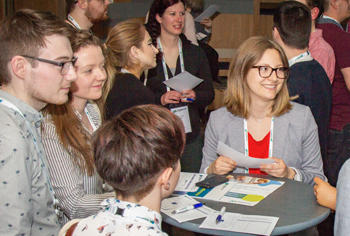
The Early Career Microbiologists’ Forum Executive Committee will be hosting an evening social event where attendees can network with other early career microbiologists over food and refreshments.
This evening will be a great opportunity to meet potential collaborators and scientists from the breadth of the microbiology discipline.
Whether it’s your first time in Edinburgh or Annual Conference and you’d like to meet new people and brush up on your networking skills, or you’d just like to come and enjoy an evening of fun and socialising, be sure to join the Wednesday networking event.

The ever-popular Annual Conference quiz will be taking place at Ghillie Dhu – a dramatically-vaulted Georgian converted church.
The quiz will start here at 20:30 with prizes up for grabs. Taking place in the shadow of Edinburgh Castle in the West End of the city centre, the evening is designed to give you a flavour of Scotland and its historical capital.
Meet old and new friends and get together in teams of six+ to compete for the prized Society quiz medal.

Edinburgh is the perfect destination if you’re looking to add a weekend on to the end of your Annual Conference. This historical city plays host to the world’s best known comedy festival and has something for everyone – regardless of your taste, style or budget.
The city has great shopping, ranging from some of the most exclusive luxury brands to independent talent and equally diverse food options, from pop-up street food through to Michelin-starred restaurants. From the rich history that you’ll find in every street to the various green spaces dotted around the city, Scotland’s capital is the perfect extended getaway for delegates.
Visit This is Edinburgh to find out more about all of the best things to do, see and enjoy in this historical capital.
Annual Conference provides the ultimate gathering location for over 1,600 microbiologists and other professionals of related fields from over 30 countries.
If you have missed out on exhibiting at this event there are still a number of sponsorship opportunities available to help promote your company to a key audience of delegates. Please email [email protected] today to discuss package options to suit you.
We also hold a number of other events throughout the year where you can exhibit or sponsor at. Full details can be found on our exhibitor and sponsorships page.
We have been made aware of rogue agencies contacting our exhibitors out of the blue claiming to be from the Society.
If you are unsure about whether the communication is genuine or fraudulent please contact the Society directly.
We have Gold, Silver and Bronze packages, or Pick and Mix options that can be tailored to your needs and budget.
Detailed information about available exhibition packages can be found in the Exhibition and Sponsorship pack, which can be downloaded below.
To book your exhibition or sponsorship place, please download the fillable registration form below and return to [email protected] with your logo and website link:
Download the floorplan showing the available exhibition spaces or contact [email protected]
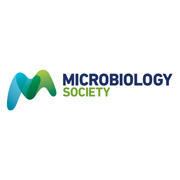
|

|

|
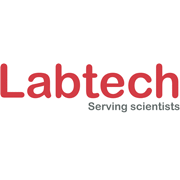
|

|
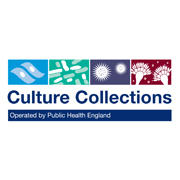
|
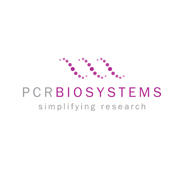
|
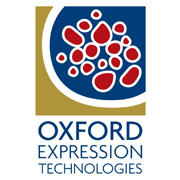
|
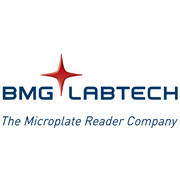
|
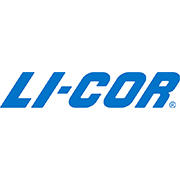
|

|

|

|

|
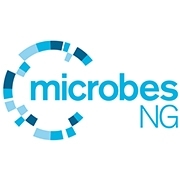
|

|
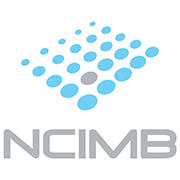
|

|

|
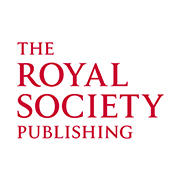
|
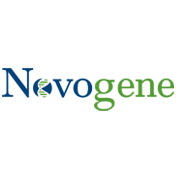
|
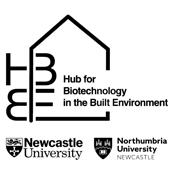
|
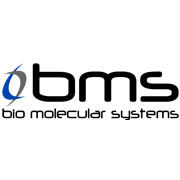
|
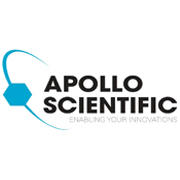
|

|

|

|

|

|